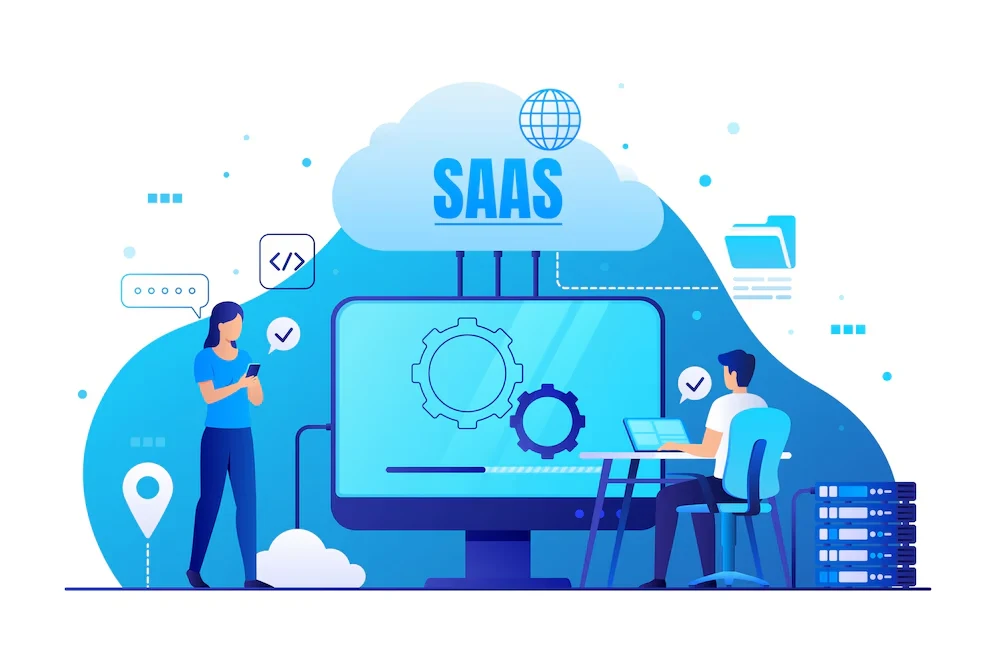
Send Us mail
Speetrance offers a range of ERP Software services for all Business all over the industry
ERP Maintenance Software: The Key to Keeping Your System Running Smoothly
In today’s highly competitive business environment efficiency is the key to success. Businesses rely on software to simplify their operations and boost efficiency, and one of the most effective tools to achieve this is ERP (Enterprise Resource Planning) software. While the introduction of an ERP system is an essential stage, maintaining it is equally important. ERP maintenance for software is required to ensure that the system is running at its optimal levels, and is able to meet the requirements of your business and adapt to the shifts due to technological advancements and growth in your business.
Over the last 8+ Years we made an impact that is strong & we have long way to go.
This complete guide explains ERP maintenance tools, their significance and benefits, its challenges, and the best way for businesses to make sure that they have the longest-lasting and successful in your ERP systems, specifically for small-sized businesses.

What Is ERP Maintenance Software?
ERP maintenance software is the process instruments, practices, and tools employed to monitor the updating, maintenance, and optimization of your existing ERP system. Similar to how an automobile needs regular maintenance to run smoothly and prevent failures Your ERP system requires ongoing maintenance to stay secure, reliable and efficient.
ERP systems are complicated and involve a wide range of business functions like accounting, HR, finance and inventory management. They also include Customer relationship management (CRM). As companies grow and change, so should their ERP systems. ERP maintenance software ensures that the system can adapt to evolving business environments and compliance requirements technological advancements, as well as addition of features.


The Importance of ERP System Maintenance
1. Improved System Reliability
Regular ERP maintenance of the system is vital to ensure that the system is in good condition and secure. System malfunctions or downtime can lead to serious disruptions to business processes. Regular maintenance is able to solve these problems early, which can avoid expensive downtime.
2. Enhanced Performance
As companies grow and their requirements change. ERP maintenance of software ensures that the software is designed to perform and scale. In time, your company will likely require more transactions, keep more data and also add additional users. Regular updates and optimizations can help your ERP software handle these changes efficiently.
3. Security Updates
Security is a major issue for all businesses of different sizes. ERP systems usually keep sensitive data from businesses which includes financial information as well as employee records as well as customer data. ERP maintenance involves installing patches as well as updates to guard against security vulnerabilities, making sure that your data is secure and complies with regulations for the industry.
4. Regulatory Compliance
Companies must comply with various industry standards and regulations. ERP systems that aren’t regularly maintained could not meet these rules, which could lead to penalties and legal problems. ERP maintenance makes sure that the system is up-to-date and in compliance with the most current standards, thus reducing the risk of not being in compliance.
5. Customization and Updates
Custom ERP software might require ongoing maintenance to keep up with changes in business and the needs of users. Customizations, enhancements and feature upgrades are essential to keeping the system in good condition. ERP maintenance of software allows businesses to benefit from the latest capabilities, while also optimizing workflows while ensuring that their ERP software is aligned with their business goals.
Key Aspects of ERP System Maintenance
Bug Fixing and Troubleshooting
Data Backup and Recovery
System Optimization

User Training and Support
Challenges in ERP System Maintenance
1. Complexity of Custom ERP Software
One of the biggest issues companies face when it comes to ERP maintenance is managing the maintenance of a custom ERP system. The software for custom ERP is tailored to a specific company’s processes which makes it more difficult to maintain than the standard ERP solutions. Customizations usually require expertise as well as ensuring that any changes or updates aren’t disruptive to business processes may be a bit complicated.
2. Data Migration and Integration Issues
In time the ERP system might require data transfer or integration with other business software. Making sure that data is transferred correctly and that new software seamlessly integrates with the current system could be a daunting task. Regular ERP maintenance of the system ensures that these changes are smooth.
3. High Costs
Even though ERP maintenance is essential however, it is also expensive. Regular updates to the system bugs, fixes, and optimization might require specialist IT resources that can cost a lot. But, not keeping the ERP system in a timely manner could lead to costly downtime, security breaches and compliance problems that could be more costly than maintenance.
4. Resistance to Change
Employees could be resistant to changes or upgrades in their ERP system. To overcome resistance, it requires an effective method of communication and education. Effectively managing user acceptance and making sure that employees are in line of changes and updates is a major challenge especially for large organizations.

ERP Maintenance for Small Businesses
Smaller companies often encounter unique challenges in the area of ERP maintenance of their systems. The lack of funds, the limited IT resources, and a lack of technical expertise in-house can make it challenging for small companies to ensure that their ERP systems are functioning smoothly. But, keeping the integrity of an ERP system is more important for small companies since it enables the company to expand and remain competitive.
Here are some tips for small-sized businesses on how to handle ERP system maintenance efficiently:
1. Choose the Best ERP for Small Business
When choosing ERP software for a small-sized business it is crucial to choose a product that meets the requirements of the business without causing unnecessary hassle. ERP software for small business should be flexible affordable, cost-effective, and simple to use. Find an ERP software that provides essential functions, like financial reporting, inventory management and customer management without requiring a lot of effort.
2. Opt for Cloud-Based Solutions
Cloud-based ERP systems are great for small-sized businesses since they typically require less internal IT infrastructure. The cloud-based ERP systems are usually more simple to update and maintain and update, as the vendor handles updates and security patches for the software. This makes it easier for small business owners as well as their IT departments.
3. Outsource ERP Maintenance
Smaller businesses might lack the resources to hire dedicated IT personnel to manage the ERP software. The outsourcing of ERP support to a third-party service company or vendor can keep the system safe, efficient and up-to-date, without the need for internal expertise.
4. Regular System Audits
Regularly auditing your ERP system will ensure that it’s running smoothly and is meeting your business’s needs. These audits will help you find weaknesses in your system, security issues or areas of improvement. Regularly scheduled assessments help businesses be proactive in addressing problems before they become expensive problems.
Choosing the Right ERP Software
The selection of the best ERP software is vital to an effective implementation. Companies should take into consideration the following elements when selecting the right ERP system:
- Specific to the industry Industries with different needs have their own specifications. For example, manufacturing businesses require ERP systems that handle scheduling production and management of inventory, whereas retail businesses need strong point-of-sale systems and the management of customer relationships (CRM) capabilities.
- Scalability As your company expands and expands, your ERP system must be able to expand to meet your needs. Make sure that the ERP software is able to handle more customers, transactions, and volumes of data.
- Modification Options An ERP system that is reliable can be customized. The ERP program you choose to customize can be adapted to your specific business workflows and processes, providing solutions that meet your particular requirements.
- Cloud in contrast to. on-premise ERP software may be hosted on premises as well as in cloud. Cloud-based ERP systems provide flexibility access, accessibility, and lower initial costs while on-premise systems give greater protection and control.
- Reputation of the vendor The reputation of the vendor as well as expertise in ERP implementation is essential. Partnering with a reputable Enterprise Software Development firm will ensure that the process is seamless and you get all the support you require throughout the entire process.
- integration capabilities ERP systems should seamlessly integrate with the other tools and software used by your company. In this way, information flows seamlessly between the systems to eliminate silos and enhance the process of making decisions.
- user interface An easy-to-use interface is crucial to ensure that employees are able to navigate the ERP system easily. If the ERP system is too complicated or difficult to navigate, it can cause a low rate of adoption.

Benefits of ERP Maintenance
- Increased Efficiency of Operation
Maintaining regular ERP services assists businesses in streamlining processes by making sure it is working at its highest level. Optimization bugs, optimization, and system upgrades improve the overall effectiveness of business processes. - Cost savings
With keeping the ERP system in good condition companies can reduce the cost of interruptions, data loss and security breach. It’s usually cheaper to invest in regular maintenance than dealing the consequences of the event of an ERP system malfunction. - Improved user experience
It is important to maintain an ERP software. can ensure that it is accessible to users. Regular updates and optimizations enhance the interface of the system, making easier for employees to navigate. - Improved Decision-Making
A well running ERP system will ensure that data for business is reliable up-to-date and easily accessible. This enhances the ability to make decisions which leads to better plan-of-action and implementation.
Conclusion
ERP maintenance programs are crucial to ensure the ERP system is efficient as well as secure and in line to your business’s needs. Regular updates and security patches, bug fixes and customisations can keep the system operating efficiently, so that companies are able to continue to streamline their processes and make educated choices.
Small-sized businesses should invest in the ongoing maintenance of the ERP system is essential to ensure expansion and competitiveness. Cloud-based solutions outsourcing maintenance tasks or even regularly updating the system Maintaining an ERP system will ensure that the company remains at its best performance.
Understanding the significance of ERP maintenance and proactive controlling the system, organizations can benefit from a smoother process with greater efficiency and increased profitability over the long term. If you are using an off-the-shelf product or a custom ERP system regular maintenance of ERP systems is crucial to maintaining and increasing the value ERP systems provide to companies.
Have any Question to our team?


